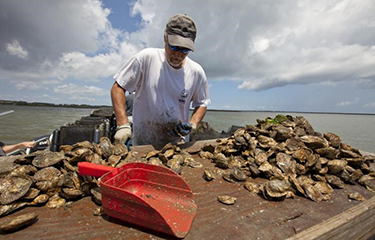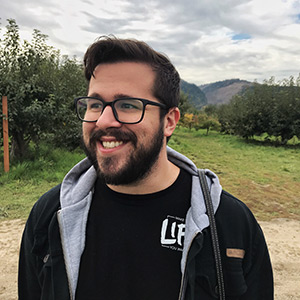Eight aquaculture projects slated to receive USD 11 million through NOAA grant program

NOAA Fisheries has recommended more than USD 11 million (EUR 9 million) for 43 projects under the 2021 Saltonstall-Kennedy (S-K) Competitive Grants Program – eight of which are aquaculture initiatives.
The eight aquaculture-related projects recommended by NOAA include a number of scientific research projects examining topics ranging from pathogens to work on monetizing industry byproducts. Of the projects recommended for funding, five of them are examining subjects relevant to shellfish and bivalves.
Researchers at University of Maryland - Baltimore County are seeking USD 299,376 (EUR 245,830) to increase scientific and practical knowledge on the viral pathogen Ostreid herpesvirus 1 (OsHV1), an emerging pathogen of concern for bivalve aquaculture, variants of which have caused major shellfish mortalities around the world. The project would focus on OsHV-1 distributions and the susceptibility of economically important U.S. East and Gulf Coast species: Eastern oysters (Crassostrea virginica), hard clams (Mercenaria mercenaria), and bay scallops (Argopecten irradians).
Also concerning bivalves, researchers at Virginia Institute of Marine Science are seeking USD 300,000 (EUR 246,351) to study the economic and environmental feasibility of soft-shell clam aquaculture in Virginia.
“More studies are needed to assess feasibility of clam reproduction and grow-out at varying temperatures, salinities, and predator-exclusion mesh to determine optimal conditions for rearing, lab growth, and field grow-out in Virginia,” the project description said.
Another shellfish-related project involves Two Docks Shellfish, a shellfish farming operation in Bradenton, Florida. The project seeks USD 264,031 (EUR 216,844) to develop a co-culture system for native shellfish and macroalgae in Florida waters.
“Development of reliable co-culture systems using native species will encourage growth of the nascent U.S. seaweed industry, increase resilience of the U.S. shellfish industry, and provide nutrient remediation benefits that may help mitigate harmful algal blooms,” the proposal said. The target species are the sunray venus clam (Macrocallista nimbosa) and the macroalgae eucheuma isiforme, although additional seaweed species will be explored.
The Swinomish Indian Tribal Community seeks USD 299,060 (EUR 245,620) to help revive an ancient mariculture practice by installing the first known present-day clam garden in the U.S. The tribal community plans to utilize clam gardens to promote the integration of traditional ecological knowledge in contemporary resource management, encourage local food security, and provide a model for other coastal fishing communities throughout the greater Pacific region.
The final of the five shellfish-aquaculture related projects has the Puget Sound Restoration Fund seeking USD 298,017 (EUR 244,768) to work on monetizing seaweeds and cockles, species that grow as a byproduct at intertidal shellfish farms in the Pacific Northwest. Currently, seaweeds and cockles are considered a burden to growers as they are thought to sully water quality and impede geoduck growth – and growers must work to remove them, incurring labor costs without monetary gain. The organization wants to study the amount of fouling seaweeds and cockles at Pacific Northwest shellfish farms and create proof-of-concept supply chains for each.
Two of the recommended projects concern aquaculture production for finfish. The Oceanic Institute of Hawaii Pacific University, seeks USD 295,409 (EUR 242,630) to establish aquaculture technology for Kumu, the Hawaiian white saddle goatfish (Parupeneus porphyreus), “an overfished species highly regarded among local recreational and commercial anglers for its cultural and economic value.” According to the proposal, Kumu is considered one of the most valuable reef fish in Hawaii, with whole fish fetching a market price of up to USD 40.00 (EUR 32.85) per kilogram.
The second of the two finish-related programs has researchers at the University of Florida seeking USD 300,000 (EUR 246,351) to refine culture methods to improve aquaculture production of hogfish, a native species to the western Atlantic Ocean and Gulf of Mexico that is highly valued as sport and food fish. This research was initially funded through the Saltonstall-Kennedy program in 2018, and now researchers are aiming to build upon past successes and experiments to define optimal larval feeding regimes, juvenile feeding regimes, and grow-out methods to commercial size.
The final of the eight projects has the Pacific American Foundation seeking USD 299,154 (EUR 245,674) to develop a sea cucumber aquaculture industry for Hawaii, “creating a new industry to benefit coastal communities throughout the state, with production of a high-value low-trophic species that feeds on waste.” The proposed project will develop hatchery methods and facilities at the Nōmilo Fishpond, operated by Kauai Sea Farm in Kalaheo, Hawaii.
At this point in the selection process, none of the projects have had funding guaranteed, but the inclusion of so many aquaculture projects bodes well for the expansion of U.S. aquaculture under the Biden administration. While President Biden hasn’t been outright supportive of aquaculture expansion, NOAA officials said it aligns with the administration’s climate interests goals of backing sustainable industries.
The administration is being urged by U.S. aquaculture advocacy group Stronger America Through Seafood to prioritize seafood production to help mitigate climate change and support the expansion of offshore aquaculture. On the other hand, some environmental organizations and People for the Ethical Treatment of Animals (PETA) are calling for a reversal of a Trump administration executive order permitting the growth of offshore aquaculture operations and practices.
In response to these projects being recommended for funding by NOAA, members of the Don’t Cage Our Ocean Coalition – an advocacy group against industrial ocean fish-farming – issued a statement condemning the support of aquaculture projects through the Saltonsall-Kennedy program.
“It’s disappointing to see this new administration continue to supply huge public investments for projects that will undermine fishing communities and pose risks to our oceans,” the coalition said. “NOAA’s funding announcement is an early signal that the Biden administration is following in Trump's footsteps to support the expansion of industrial aquaculture. We hoped that promises to prioritize science, the environment, and frontline communities and workers would mean an end to development of this unpopular and unnecessary industry.”
Photo courtesy of NOAA






Share